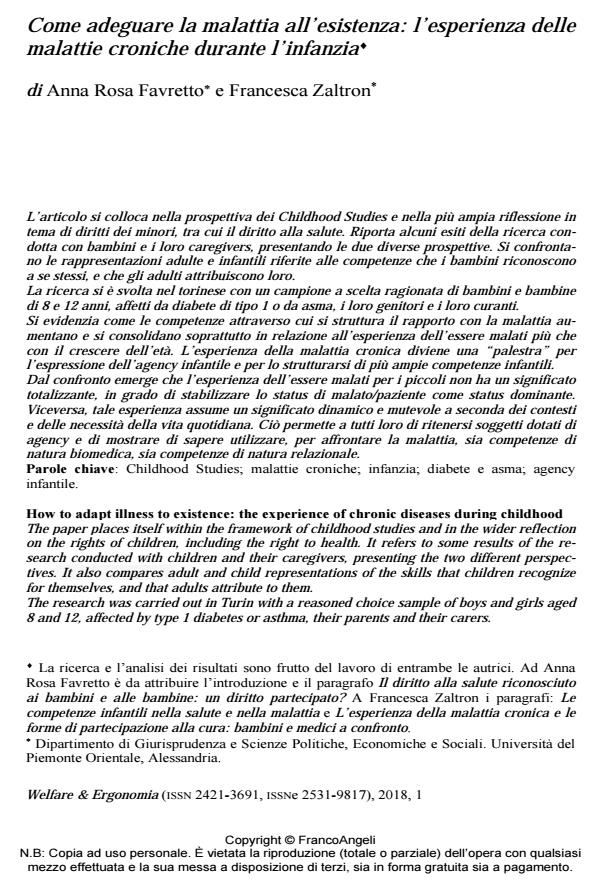How to adapt illness to existence: the experience of chronic diseases during childhood
Journal title WELFARE E ERGONOMIA
Author/s Anna Rosa Favretto, Francesca Zaltron
Publishing Year 2019 Issue 2018/1
Language Italian Pages 15 P. 87-101 File size 200 KB
DOI 10.3280/WE2018-001005
DOI is like a bar code for intellectual property: to have more infomation
click here
Below, you can see the article first page
If you want to buy this article in PDF format, you can do it, following the instructions to buy download credits

FrancoAngeli is member of Publishers International Linking Association, Inc (PILA), a not-for-profit association which run the CrossRef service enabling links to and from online scholarly content.
The paper places itself within the framework of childhood studies and in the wider reflection on the rights of children, including the right to health. It refers to some results of the research conducted with children and their caregivers, presenting the two different perspectives. It also compares adult and child representations of the skills that children recognize for themselves, and that adults attribute to them. The research was carried out in Turin with a reasoned choice sample of boys and girls aged 8 and 12, affected by type 1 diabetes or asthma, their parents and their carers. It is noted that the skills which structure the relationship with the disease increase and consol-idate most in relation to the experience of being ill rather than with growing up. The experi-ence of chronic illness becomes a "gymnasium" for the expression of the child agency and for the structuring of wider childhood skills. The comparison shows that the experience of being ill for young people does not have a total-izing meaning, capable of stabilizing the status of patient as the dominant one. Conversely, this experience takes on a dynamic and changing meaning according to the contexts and needs of daily life. This allows all of them to consider themselves as entities with agency and to show that they, in order to face the disease, know how to use both biomedical and relation-al skills.
Keywords: Childhood Studies; chronic diseases; childhood; diabetes and asthma; childhood agency
Anna Rosa Favretto, Francesca Zaltron, Come adeguare la malattia all’esistenza: l’esperienza delle malattie croniche durante l’infanzia in "WELFARE E ERGONOMIA" 1/2018, pp 87-101, DOI: 10.3280/WE2018-001005